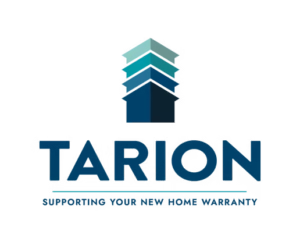
Welcome to Condo’s Corner!
Brought to you by Daulton Read, President of Read Property Management
Issue #14
Get ready for a weekly dive into condo living like never before with Condo’s Corner! Speaking from my perspective as a Condominium Manager, my goal is to entertain and provide valuable management insights and stories that can help you live your condo life a bit better—all with a little bit of wit, charm, and practicality.
Annual General Meetings (AGMs): What You Need to Know
AGMs aren’t just a legal formality—they’re a prime opportunity for condo owners to connect, stay informed, and make their voices heard. Held annually, these meetings let owners meet the board, discuss important issues, and ask those pressing questions…but remember; this is not where owners get issues specific to their unit resolved. The AGM is only for business related to the corporation.
If you’re a condo owner, here’s everything you need to know about what to expect, why it matters, and how AGMs help keep your community running smoothly.
Getting Ready for the AGM
In the lead-up to an AGM, condos typically send out preliminary notices to announce any board vacancies and request nominations. If a director’s term is up, they’ll need to run for re-election. There’s no limit to the number of consecutive terms a director can serve in Ontario.
If you’re planning to throw your hat in the ring, be ready to submit a brief bio and a statement explaining your goals. Deadlines for nominations are usually noted in the notice, so mark your calendar!
The Preliminary AGM Package
Around 35 days before the meeting, owners will receive the Preliminary AGM package, which includes:
-
General info about the meeting such as planned time, place, etc.
-
If an election will take place, the preliminary notice will say what spots are open and what the qualifications are to be a director. If you know someone who wants to be on the board, you can let the board know in writing, and they will list their names and their disclosure statement in the second notice of meeting.
-
The owners will also vote on the Auditor at the meeting. Every condominium corporation with over 25 units must have its financial statements audited annually. However, those with fewer than 25 units can choose not to have an audit, but only if all owners have consented in writing to waive this requirement. Every single one, so if one owner wants an audit and 23 do not, there still must be an audit!
You must submit any information (auditor, candidate for elections, other material to be discussed) by the date identified in the preliminary package if you would like it to be included in the official AGM Package.
The AGM Package
About 15 days before the meeting, owners will receive the AGM package, which includes:
-
The meeting agenda
-
Minutes from the previous year’s AGM
-
The auditor’s report and financial statements
-
Candidate statements for board elections
-
A proxy form for those unable to attend
Depending on what’s happening in your condo, it might also include a reserve fund study or a related plan.
Kicking Off the Meeting
For an AGM to officially start, there needs to be a quorum—a minimum number of owners or proxies present which is atleast 25% of owners represented. Lose the quorum during the meeting (say someone leaves early), and it has to be adjourned.
The meeting is open to owners, their proxies, or mortgage representatives. Management, the auditor, and other guests can attend if invited by the board. If an owner is behind on fees by more than 30 days, they can attend but can’t vote.
Voting can be conducted many ways, like a show of hands, recorded ballots, phone-in voting, and the recently introduced virtual voting option allowed by the Condo Act. Combining both same-day and advanced virtual voting is an excellent way to maximize owner participation. Since some owners may live in other parts of Ontario and others may have work commitments or prior obligations, the advanced voting option is ideal for enabling them to participate in critical decision-making.
Pro tip: Keep it respectful at AGM’s. Disagreements are fine, but shouting matches? Not so much. Civility goes a long way in maintaining a community that people are happy to call home. If you plan to bring up a problem or issue at an AGM, I always suggest pairing it with a potential solution for the board to consider.
What Happens During the AGM?
Here’s the usual flow of events:
-
Approval of Previous Minutes: Before voting, owners can suggest corrections. Ideally, these are addressed before the AGM package goes out.
-
Auditor’s Report: The auditor presents their findings, and owners can ask questions (sending complex ones ahead of time helps everyone). Owners then vote to re-elect or replace the auditor.
-
President’s Report: This report is the president’s chance to break down the past year—what went well, what didn’t, and what’s on deck for the future. The goal? Transparency and motivation for owners to rally around shared goals, whether that’s tackling certain issues or planning for a big reserve project.
-
Board Elections: Candidates nominated ahead of time or from the floor give their speeches. While Q&A sessions aren’t always the norm, they can be a great way to see where candidates stand on key issues. Owners cast their votes, and the scrutineers count and announce the results.
-
By-Law Votes and Question Period: If needed, owners vote on by-laws. The meeting typically wraps up with an open Q&A session, giving everyone a chance to raise concerns or seek clarification.
Meetings ideally follow a clear and organized progression. However, passionate owners sometimes share their thoughts in ways that can shift focus from the main topics and motions on the floor. While this can lead to lively discussions, it usually leads to longer, disorganized, confusing and confrontational experiences. To create a more enjoyable experience, it’s important to maintain a balance that encourages participation while keeping the agenda on track. A well-structured Annual General Meeting (AGM) can foster engagement and positively impact attendees, making it a beneficial experience for everyone involved.
The Bottom Line
AGMs are your chance to engage with your condo community and influence its future. Whether you’re there to vote, ask questions, or run for the board, showing up matters. A well-run AGM builds trust, fosters transparency, and strengthens your condo’s sense of community… and for those who want to build their community further, why not bring some wine and snacks and turn it into a social night once the meeting concludes?
Got an upcoming AGM? Mark your calendar, do your prep, and make the most of it!
A quick note and request:
As we continue to grow Read Property Management, positive reviews from individuals like you can make a huge difference in helping us reach more communities. If you’ve had a positive experience working with me, I’d truly appreciate it if you could take a moment to leave a review. Your feedback not only supports us but also helps others see the quality and care we bring to condominium management. Best of all, it costs nothing but a minute of your time!
You may do so here – https://g.page/r/CeegrI40eRKzEAE/review
Let’s Hear It From You!
Got a condo tale to tell or burning questions about condo living? Don’t be shy—share ’em with me! Whether it’s a funny story, a management mystery, a celebratory story, or just a nightmare, we’re all ears. All you need to do is reply to this email so we can keep the content coming.
Make sure to share this newsletter with your friends, family, and, more importantly – that neighbour who could learn a few things!
Just a quick heads-up: while I strive to deliver top-notch content, I’m not liable for any actions or mischief that might stem from my thoughts. Remember, I’m here to entertain and inform, not dispense legal advice. Also some links shared may be affiliate links. And if you’ve got a bone to pick with anything I say, fire away! Complaints make great conversation starters.
– Daulton R.


